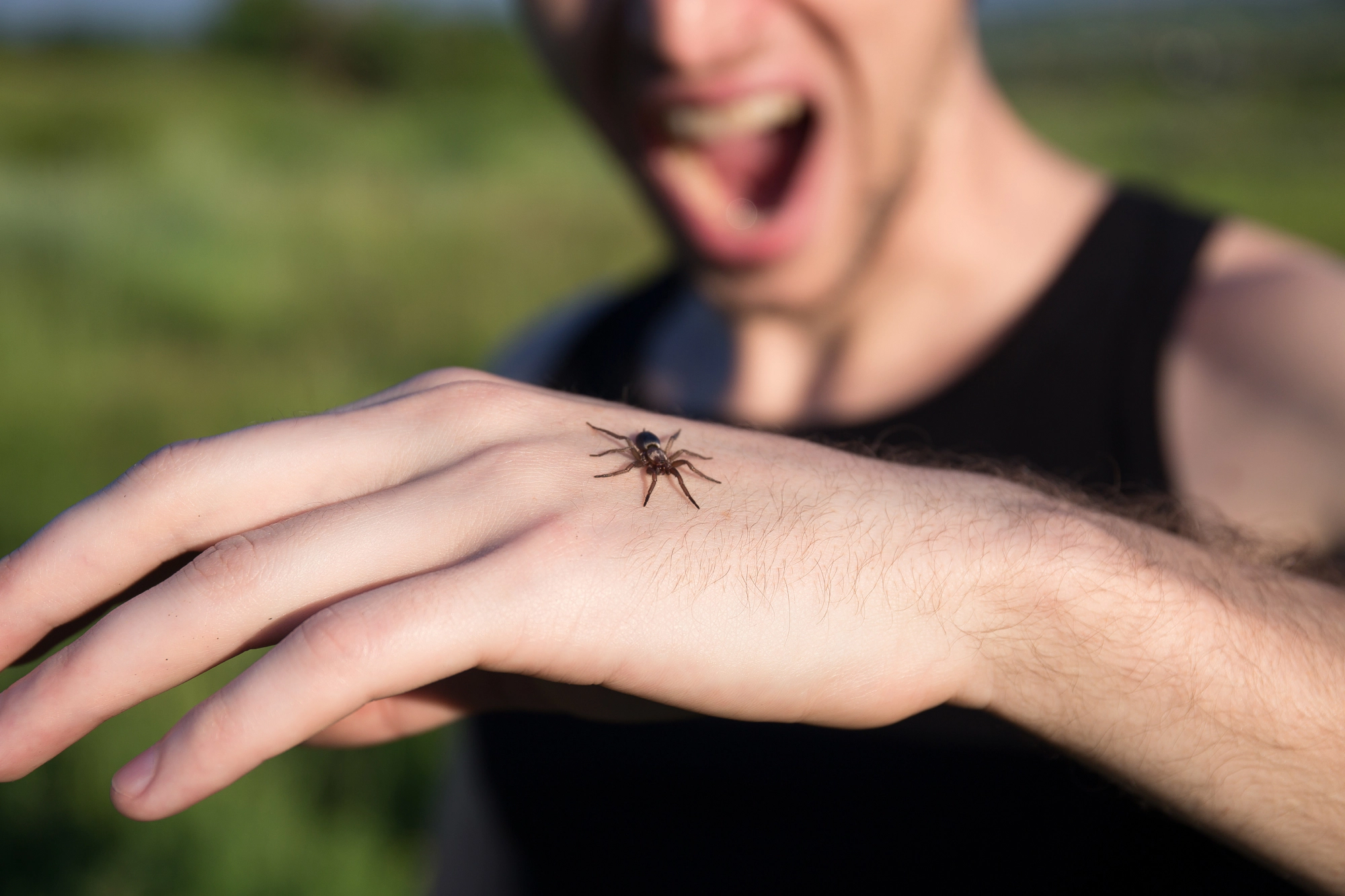When to Seek Medical Treatment for Spider Bites
Animal & Bug Bites
•
Apr 4, 2023

Spiders, for the most part, are harmless creatures that just happen to give us the creeps — but that doesn’t stop some of them from biting us. So, when do you need to seek medical treatment for spider bites? While most spider bite incidents are not medical emergencies, it’s important to understand when a spider bite is serious and deserving of medical attention.
As the weather is warming up, spiders are starting to come out of their winter hiding, excited to make your home their new home. Make sure to read up on our spring outdoor safety tips so that you can prevent unwanted interactions with these eight-legged friends.
Spider bite symptoms: How to identify a spider bite
Spider bites can often be mistaken for other bug bites if the culprit goes unnoticed or for other skin infections such as sores and even burns. Because of this, it’s important to be able to identify a spider bite if one shows up on your body so you can seek the proper treatment.
If you are bitten by an arachnid, the following spider bite symptoms will appear on the area:
- Redness
- Some pain and swelling
- Itchy and or inflamed skin
If these are the only symptoms that appear, you were likely bitten by a harmless house spider and can respond accordingly with the following home treatment for spider bites.
Home treatment for spider bites
Similar to treating normal bug bites, here is what to do if you get bit by a spider:
- Clean the bitten area with warm water and soap
- Apply an ice pack or cold compress to the bitten area for around 15 minutes
- Apply an antibiotic ointment such as Neosporin to prevent infection
- Take any over-the-counter pain medication if needed
Most spiders’ fangs are so small that they are not even able to puncture the skin, only thinner-skinned areas, meaning the bite and its symptoms should dissipate within a couple of days. However, if the bite is showing signs of infection, it’s time to seek medical care.
When should I worry about a spider bite?
You should seek medical treatment for spider bites if you begin to exhibit symptoms that show you were bitten by a venomous spider such as a brown recluse or black widow spider. These particular spiders, especially the females, have larger fangs that can penetrate the skin and release more harmful venom into the victim.
If you notice the following symptoms after getting a spider bite, it is likely you were bitten by a dangerous spider and need to seek medical help:
- The bitten area is red and inflamed and accompanied by a burning, painful sensation
- A bulls-eye-type pattern with blue, purple, white, and red rings surrounds the bite
- The area has spreading red streaks or drainage coming from the bite
- Abdominal cramping, nausea, or vomiting
- Muscle cramping
- Difficulty breathing or swallowing
- Headaches or body aches
- Fever
- Allergic reactions: Being allergic to spider bites is rare for most people, but if your eyes, lips, tongue, or throat begin to swell, head to your nearest emergency room for help.
Brown recluse and black widow bites can create severe complications if not treated promptly. While brown recluse bites are not fatal and may only destroy tissue, a black widow’s bite can be lethal because its venom attacks the tissue and neurological system.
Both of these spiders like to hang out in warmer, dark climates, so be sure to check your surroundings before handling any equipment or taking anything out of storage this spring.
Continue learning: When to go to the doctor for a bug bite or poisonous snake bite
Complete Care’s treatment for spider bites
If you were bitten by a venomous spider such as a brown recluse or black widow spider, head to your nearest Complete Care facility as soon as possible. Our low wait times will allow you to be treated promptly. If you are able to do so safely, photograph the spider and show it to the doctor so that they can better determine the severity of the bite and provide proper treatment.
Our medical professionals may prescribe an antibiotic ointment or oral antibiotics to treat the infection or will administer antivenin, an IV anti-venom treatment, to prevent the further spread of a black widow’s venom. These bites may take weeks to heal fully, but we will provide you with the care instructions you need to make a speedy recovery.
Complete Care has freestanding ER locations in both Texas and Colorado Springs that are fully equipped to administer treatment for spider bites 24/7. Come in and see us and we will take complete care of you.
More Helpful Articles by Complete Care: